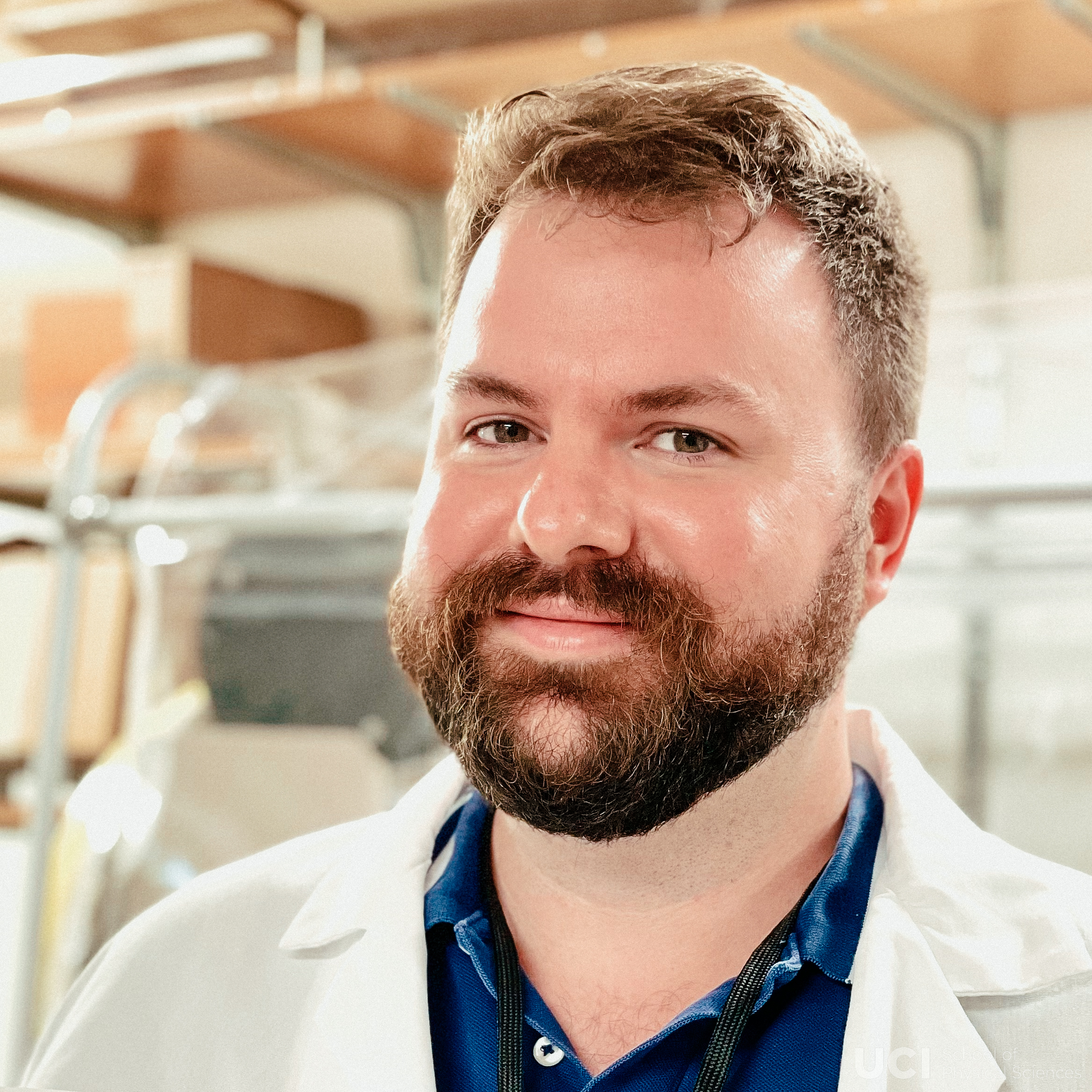New Faculty Spotlight: Matt Griffin, Department of Chemistry

Those processes seem to happen in coordinated ways, but how that coordination happens is a mystery and is a focus of Griffin's lab's research.
There reside in each of our guts trillions of microbes that have no genetic relation to us but which are critical to the healthy functioning of our bodies. These microbes comprise the human microbiome, and they may have an impact on the body’s response to certain cancer treatments. The lab of Professor Matt Griffin, who is one of the newest faculty members of the UCI Department of Chemistry, researches the chemistry behind the microbiome’s activity during such treatments, with a special focus on the enzymes and molecules that activate the microbiome’s immune responses. “This is inherently a chemical question,” said Griffin. “And my lab will use a combination of chemical and biochemical techniques to identify how these microbial molecules are made, what they are interacting with in the host immune system and how we can exploit this knowledge to improve cancer interventions.” There is a body of evidence indicating that certain gut microbes impact cancer treatments – but how they do so remains poorly understood. It’s a field that bridges multiple biological systems – gut microbiome, immunity and cancer – so deciphering these questions is a substantial interdisciplinary challenge that will require perspectives from across many fields. “That’s why working at UCI is so exciting for us – we’re thrilled to be surrounded by leading experts across multiple programs, departments and schools, including the Microbiome Center, the Institute for Immunology and the Chao Family Comprehensive Cancer Center,” said Griffin, who received his Ph.D. from Caltech. “This helps us not only to contextualize our own work as chemists, but also to see how our molecular approaches may be useful in collaboration with other cutting-edge labs on campus.”
